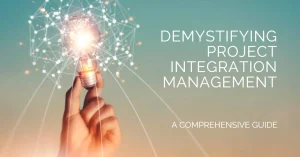Introduction
Project management has emerged as a dynamic and rewarding career choice for women, offering opportunities for leadership, innovation, and professional growth. As organizations increasingly recognize the value of diverse perspectives in driving project success, women are stepping into project management roles in greater numbers. This shift not only enhances workplace diversity but also fosters an environment where women can thrive and lead.
One of the key credentials that can significantly bolster a woman’s career in project management is the Project Management Professional (PMP) certification. Issued by the Project Management Institute (PMI), the PMP certification is globally recognized and respected, serving as a benchmark for project management excellence. With over 470,000 PMP-certified professionals worldwide, this certification opens doors to a vast network of peers and resources, providing a platform for collaboration and knowledge sharing among project managers [6].
The importance of PMP certification in empowering women in project management cannot be overstated. It equips women with essential skills and knowledge, enhancing their ability to deliver successful projects and navigate complex organizational landscapes. Furthermore, research indicates that PMP certification holders earn, on average, 16% more than their non-certified counterparts, which can help address the gender pay gap in the industry [10]. By pursuing PMP certification, women not only enhance their professional credentials but also position themselves as leaders in the field, paving the way for future generations of women in project management.
Understanding PMP Certification
Definition of PMP Certification and Its Governing Body (PMI)
The Project Management Professional (PMP) certification is a globally recognized credential offered by the Project Management Institute (PMI). It signifies that an individual possesses the knowledge, skills, and experience necessary to lead and direct projects effectively. The certification is designed to validate a project manager’s ability to manage the project lifecycle, from initiation to closure, ensuring that projects are completed on time, within scope, and on budget.
Overview of the Certification Process
To obtain PMP certification, candidates must meet specific eligibility requirements, which include:
- Educational Background: Candidates must have a secondary degree (high school diploma, associate’s degree, or global equivalent) along with 7,500 hours of leading and directing projects, or a four-year degree with 4,500 hours of leading and directing projects.
- Project Management Education: A minimum of 35 hours of project management education is required, which can be obtained through various training programs or courses.
- Exam Structure: The PMP exam consists of 180 multiple-choice questions that assess a candidate’s understanding of project management principles, practices, and methodologies. The exam is designed to test both theoretical knowledge and practical application in real-world scenarios.
Statistics on the Increasing Demand for Certified Project Managers
The demand for certified project managers is on the rise across various industries. According to recent data, organizations are increasingly recognizing the value of PMP certification, leading to enhanced job opportunities and higher salary potential for certified professionals. For instance, PMP-certified project managers often earn significantly more than their non-certified counterparts, with statistics indicating that 72% of women in project management hold a certification compared to 76% of men, highlighting a growing trend among women to pursue this credential [1][2].
Moreover, the PMP certification is particularly valuable as project sizes and complexities increase, making it a critical asset for women aspiring to advance their careers in project management. The certification not only enhances professional credibility but also empowers women by providing them with the skills and recognition needed to excel in leadership roles within the field [3][4].
The Current Landscape for Women in Project Management
The project management field has seen a gradual increase in the representation of women, yet significant challenges remain. Understanding the current landscape is crucial for women pursuing careers in this domain, especially when considering the value of certifications like the Project Management Professional (PMP) certification.
Statistics on Women’s Representation in Project Management Roles
- Women currently represent approximately 30% of project managers globally, indicating a notable gender gap in the profession. This statistic highlights that while women are present, they often occupy lower-level roles, such as project coordinators, rather than managerial positions [10][13].
- The average age of women in project management is 40.8 years, with 37% holding an academic degree in project management [1][3].
Common Barriers Women Face in Advancing Their Careers
Women in project management encounter several barriers that can hinder their career advancement:
- Gender Bias: Many women face biases that can affect their opportunities for promotions and salary increases. This glass ceiling often results in fewer women being considered for leadership roles [2][7].
- Lack of Mentorship: The absence of mentorship opportunities is a significant challenge. Without guidance from experienced professionals, women may struggle to navigate their career paths effectively [15].
- Unequal Growth Opportunities: Women often have less access to networking and professional development resources, which can limit their visibility and advancement in the field [9][10].
Successful Case Studies of Women Leaders in Project Management
Despite the challenges, there are inspiring examples of women who have successfully navigated the project management landscape:
- Mary Pat emphasizes the importance of community and networking for women in project management. Her experiences highlight how these resources can empower women to overcome barriers and achieve their career goals [4].
- Research indicates that women project managers who have access to mentorship and support networks tend to have more successful careers, showcasing the positive impact of these initiatives [8][15].
How PMP Certification Empowers Women
Obtaining a Project Management Professional (PMP) certification can serve as a powerful tool for women seeking to establish themselves in a predominantly male-dominated field. Here are several specific ways in which PMP certification can benefit women in project management:
- Increased Credibility and Recognition: The PMP certification is widely recognized and respected across various industries. For women, earning this certification can significantly enhance their credibility, allowing them to stand out in a competitive job market. It signals to employers and colleagues that they possess a high level of expertise and commitment to the profession, which can help in overcoming gender biases that may exist in the workplace [1][5].
- Enhanced Skills and Knowledge: The process of preparing for the PMP certification involves rigorous training that covers essential project management principles, methodologies, and best practices. This training not only equips women with the necessary skills to manage projects effectively but also boosts their confidence in their abilities. As they gain a deeper understanding of risk management, stakeholder engagement, and project lifecycle management, they become more competent leaders capable of driving project success [14][12].
- Networking Opportunities: PMP certification opens doors to a global community of certified project managers, providing women with invaluable networking opportunities. Engaging with other professionals through forums, workshops, and conferences can lead to mentorship, collaboration, and career advancement. This network can be particularly beneficial for women, as it fosters connections with peers who share similar experiences and challenges in the industry [8][10].
- Career Advancement and Salary Potential: Statistics indicate that PMP-certified professionals tend to earn significantly higher salaries compared to their non-certified counterparts. For women, this can translate into greater financial independence and career growth. The median salary for PMP-certified project leaders in the U.S. is reported to be 32% higher than those without certification, making it a worthwhile investment for women looking to enhance their earning potential [4][7].
- Support for Gender Diversity: The push for gender diversity in project management is gaining momentum, and organizations are increasingly recognizing the value of diverse teams. By obtaining a PMP certification, women not only contribute to this diversity but also position themselves as advocates for change within their organizations. This can lead to more inclusive workplace cultures that value the contributions of all team members [9][15].
Overcoming Barriers to Certification
Pursuing a Project Management Professional (PMP) certification can be a transformative step for women in the field of project management. However, many face unique challenges that can hinder their journey toward certification. Here are some key points to help women overcome these barriers and successfully prepare for the PMP exam.
Tips for Balancing Work, Study, and Personal Commitments
- Create a Structured Study Plan: Developing a detailed study schedule can help manage time effectively. Allocate specific hours each week dedicated solely to studying for the PMP exam, ensuring that this time is protected from work and personal distractions.
- Prioritize Tasks: Use prioritization techniques, such as the Eisenhower Matrix, to distinguish between urgent and important tasks. This can help in managing daily responsibilities while making time for exam preparation.
- Utilize Time Management Techniques: Efficient time management is crucial when preparing for the PMP exam. Techniques such as the Pomodoro Technique, where you study in focused bursts followed by short breaks, can enhance productivity and retention of information [8].
- Set Realistic Goals: Break down the study material into manageable sections and set achievable goals for each study session. This can help maintain motivation and track progress effectively.
Resources Available for Women
- Study Groups: Joining or forming study groups can provide a supportive environment where women can share knowledge, resources, and encouragement. Collaborative learning can enhance understanding and retention of complex project management concepts.
- Mentorship Programs: Seeking mentorship from experienced project managers can provide valuable insights and guidance. Many organizations offer mentorship programs specifically aimed at women in project management, which can help navigate the certification process and career advancement.
- Online Courses and Webinars: Numerous online platforms offer courses tailored for PMP exam preparation. These resources often include flexible schedules, allowing women to learn at their own pace while balancing other commitments.
- Networking Opportunities: Engaging with professional organizations that focus on women in project management can provide access to workshops, seminars, and networking events. These platforms can foster connections with peers and industry leaders who can offer support and advice.
Encouragement to Seek Support
Women pursuing PMP certification should not hesitate to seek support from organizations dedicated to empowering women in project management. These organizations often provide resources, networking opportunities, and advocacy that can help women overcome barriers and succeed in their careers. By leveraging these resources, women can build confidence, gain knowledge, and ultimately enhance their professional standing in the project management field.
Success Stories: Women Who Have Benefited from PMP Certification
The Project Management Professional (PMP) certification has proven to be a transformative asset for many women in the field of project management. By equipping them with essential skills and knowledge, PMP certification not only enhances their professional credibility but also opens doors to new opportunities. Here are some inspiring stories of women who have successfully navigated their careers with the help of PMP certification.
1. Kayla Brown: From Student to Project Manager
Kayla Brown, a former PMP Exam Prep student, exemplifies how project management knowledge can lead to significant career advancements. After obtaining her PMP certification, she secured a position as the project manager for Simple Focus, a design agency. Kayla’s journey highlights the importance of formal training and certification in gaining confidence and expertise in managing complex projects. Her story serves as a testament to the value of PMP certification in achieving career goals and aspirations [4].
2. Sarah’s Journey: Overcoming Challenges
Sarah’s experience illustrates the profound impact of PMP certification on career trajectory. After completing a comprehensive PMP training program, she passed the exam and felt an immediate boost in her professional standing. Sarah’s certification not only validated her skills but also led to a significant increase in her responsibilities and opportunities within her organization. Her success story emphasizes that with determination and the right credentials, women can overcome barriers and excel in project management [14][15].
3. Stephanie Bedford: Speaking the Language of Creative
Stephanie Bedford, mentored by her PMP-certified mother, has embraced the certification as a means to bridge her creative talents with project management skills. As a PMP-certified project manager, she has been able to effectively communicate and collaborate with diverse teams, enhancing her ability to lead creative projects. Stephanie’s journey underscores the importance of mentorship and the role of PMP certification in empowering women to thrive in traditionally male-dominated fields [5][9].
Advice from Successful Women
The experiences of these women provide valuable insights for those considering PMP certification:
- Invest in Yourself: Kayla emphasizes the importance of viewing certification as an investment in one’s career. She encourages aspiring project managers to pursue PMP certification to enhance their skills and marketability.
- Seek Mentorship: Stephanie highlights the significance of mentorship in navigating the challenges of project management. She advises women to seek guidance from experienced professionals who can provide support and encouragement.
- Embrace Challenges: Sarah’s story serves as a reminder that challenges are opportunities for growth. She encourages women to embrace the difficulties they may face on their journey to certification and to remain persistent in their pursuit of success.
Conclusion
Obtaining a Project Management Professional (PMP) certification is increasingly recognized as a vital asset, particularly for women aspiring to excel in this field. The certification not only enhances one’s understanding of project management best practices and methodologies but also significantly boosts career opportunities. With over 470,000 PMP-certified professionals globally, this credential opens doors to prestigious roles and networks within the industry, making it a worthwhile investment for women looking to advance their careers [8][9][14].
Moreover, the importance of women in leadership roles within project management cannot be overstated. As organizations strive for diversity and inclusion, women bring unique perspectives and skills that are essential for effective project execution. The ability to manage projects with empathy and interpersonal skills is particularly valuable, especially in today’s work environment that increasingly prioritizes flexible work arrangements [10][11]. By pursuing PMP certification, women not only equip themselves with the necessary tools to lead projects successfully but also position themselves as strong candidates for leadership roles.
In conclusion, the journey towards obtaining a PMP certification is not just about personal career advancement; it is also about contributing to a more diverse and inclusive project management landscape. Women are encouraged to take proactive steps towards this goal, whether through enrolling in preparatory courses, networking with other professionals, or seeking mentorship from established leaders in the field. By doing so, they can empower themselves and pave the way for future generations of women in project management. Embrace the opportunity to enhance your skills and make a significant impact in the industry—consider pursuing your PMP certification today!
Find out more about Shaun Stoltz https://www.shaunstoltz.com/about/.
This post was written by an AI and reviewed/edited by a human.



